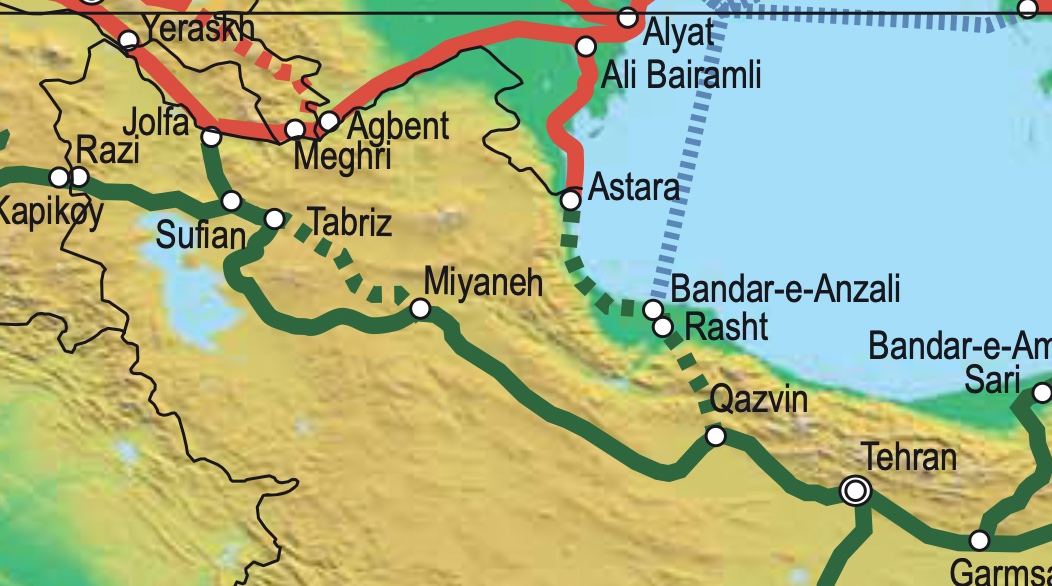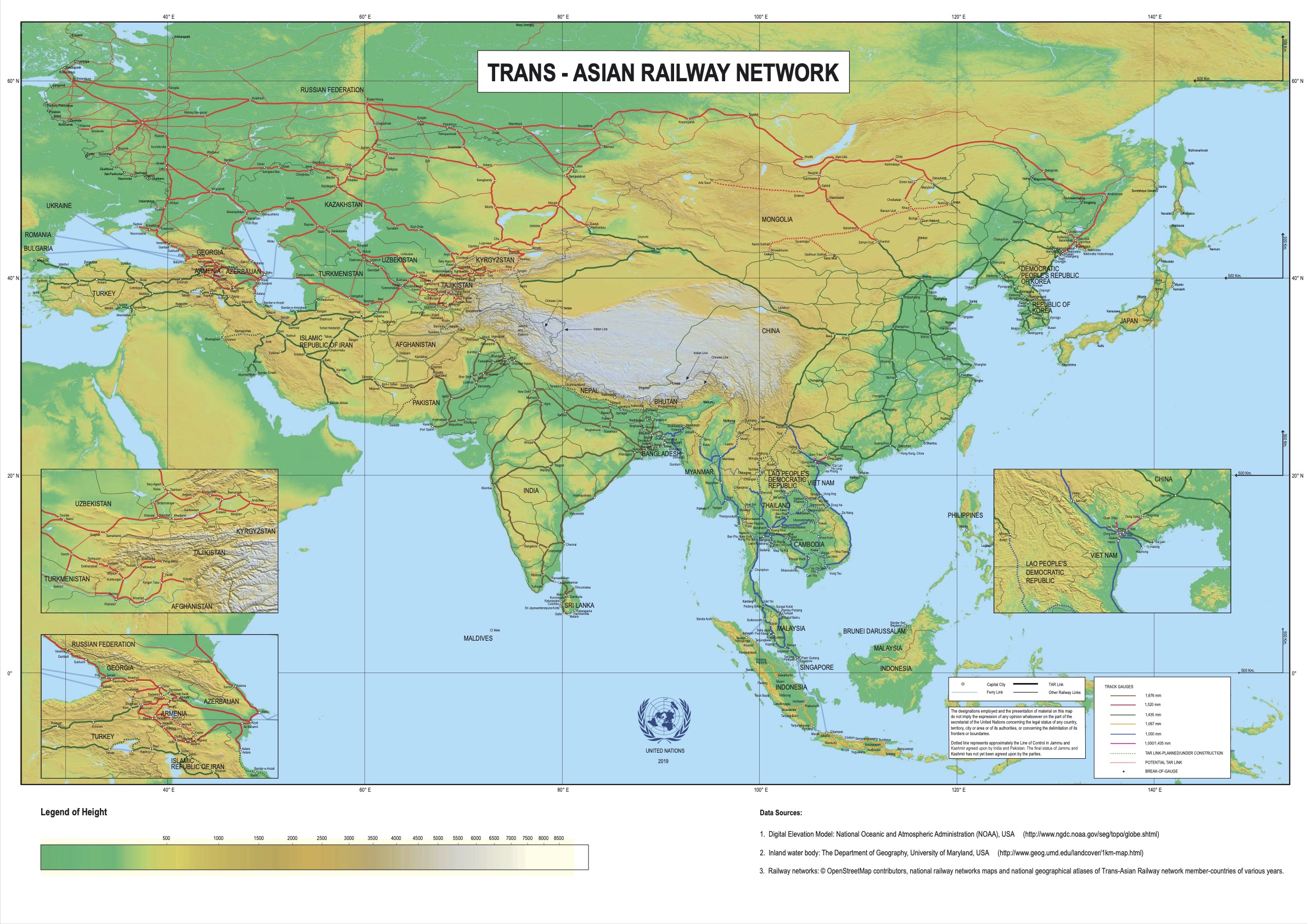Iran adds new railway line with potential for the wider region

A newly constructed rail line is set to be augmented this week. The railway will connect Bostanabad to Khavaran (near Tabriz), covering a distance of 44 kilometres. The section is part of the connection between Khavaran and Miyaneh, which is now as good as complete. The completion shortens the distance between Khavaran and Tehran by 4-5 hours, and is about 114 kilometres shorter than the road distance between the vital nodes.
The railway connection between Tabriz and Miyaneh has been a hurdle in western Iranian railway transportation for years. Until now, trains had to take a major detour (see map). As a result of this new railway connection, trains can connects between the cities directly. With this, Iran has got a faster domestic logistics channel from East to West.
Connecting to Turkey
The rail way line could even have more potential if the connection from Khavaran to Tabriz is completed, the last missing link. Amir Asri, who works for the Iranian firm MAPNA Locomotive, explained that this Miyaneh-Bostanabad-Tabriz project still needs some final touches. The final section between Khavaran and Tabriz needs to be completed in the future. Once this line has been fully finalised, it will be part of the southern route of the Silk Road, says Asri.
The southern route of the New Silk Road runs through Iran and Turkey instead of Kazakhstan and Russia. The railway link between Tabriz and Turkey is already there. If the railway link between Khavaran and Tabriz is completed, the Miyaneh-Bostanabad-Tabriz line is connected to Turkey.

Trans Asia Railways
Apart from being part of the southern route of the Silk Road, this railway is also considered as the southern route of the Trans Asia Railways (TAR). Initiated back in the 1950s, TAR envisions a gigantic rail connection between Singapore and Istanbul, extending over a length of 14,080 kilometres.
The southern corridor in TAR aims to create a rail connection over Turkey, Iran, Pakistan, India, Bangladesh, Myanmar, and Thailand, with extended railways running from China to Southeast Asian countries. In 2006, an extensive Intergovernmental Agreement on the Trans-Asian Railway Network was developed, involving 25 countries in the project, with a lengthy document illustrating the to-be-constructed railways for each country. This agreement encompasses almost all Central Asian countries, China and India, as well as some Republic of Korea and Iran, with the latest development such as China and Laos railway. Nevertheless, the development of this massive rail project has come in an expected slow fashion, if not far-fetched.

Gauge differences
Obstacles across those 25 countries are quite obvious, one of which is gauge differences. Roaming across the southern corridor of TAR, one could spot at least three types of gauges. Iran and Turkey use the standard gauge (1,435 mm), while India, Pakistan, Bangladesh, and Sri Lanka use the so-called Indian gauge (1,676 mm). Moreover, most of the countries in Southeast Asia employ the metre gauge (1,000 mm).
Thus, for a journey starting from Bangkok, if the cargo manages to transport all the way via rail to Istanbul, it will first have to change from metre gauge to Indian gauge (from Myanmar to Bangladesh), then switch to the standard gauge when it passes Pakistan and enters Iran.
Geopolitical situation
On the other hand, the geopolitical situation also hinders rail development. As Asri explained, with the ongoing US sanctions, Iran’s infrastructure is facing heavy investment blockage. Moreover, forwarders are still hesitant to opt for the route through Iran considering that they may be in breach of sanction rules. Therefore, the potential of both the southern route on the New Silk Road and the TAR remains to be seen.
Also read:




